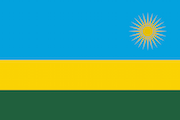 Researchers at the Graduate School of Education at Stanford University have undertaken a study of literacy in the African nation of Rwanda. The study, undertaken in cooperation with the government of Rwanda and Save the Children takes an unprecedented look at home, school, and community attitudes around reading, writing and language in rural Rwanda.
Researchers at the Graduate School of Education at Stanford University have undertaken a study of literacy in the African nation of Rwanda. The study, undertaken in cooperation with the government of Rwanda and Save the Children takes an unprecedented look at home, school, and community attitudes around reading, writing and language in rural Rwanda.
Elliott Friedlander, a doctorate student in the Graduate School of Education at Stanford and the leader of the study, stated that “Rwanda has in fact come a long way in recent years in improving literacy. We want to understand what efforts are working best to help strengthen them and expand their reach.”
The researchers have finished the first phase of what is a planned five-year project. This has involved assessing the state of literacy in rural Rwanda. Over the next few years, the researchers will assess interventions aimed at improving literacy to determine what is most effective.
The study called, “Literacy Boost in Rwanda: A Randomized Control Trial,” is funded by Comic Relief, a charity based in the United Kingdom.
Below is a video of Eliott Friedlander discussing the research.











It appears this study will be another continuation of White scholars using an African country as its higher education research petri dish. Just pause for a moment, how can anyone in good faith even remotely discuss the literacy rate in Rwanda and not discuss:1) the historical and current pulverization of its mineral resources, 2) the imploding of its infrastructure, and 3) and the devaluation of its currency (the Rwandan Franc) as orchestrated by the Western Colonial Masters(France, USA, Britain, etc.).
Further, when you have nefarious organization such as “Save the Children” working in conjunction with this study, it clearly sends out red flags for various reasons. The solution to this problem is not completed by any means. In other words, if Rwanda’s infrastructure is significantly enhanced along with educational structures being built along with adequate teachers, supplies, and other educational accoutrements, then; the literacy rate will increase. Unfortunately; Rwanda is still being managed by those outside of the country and in some regards, within the country.